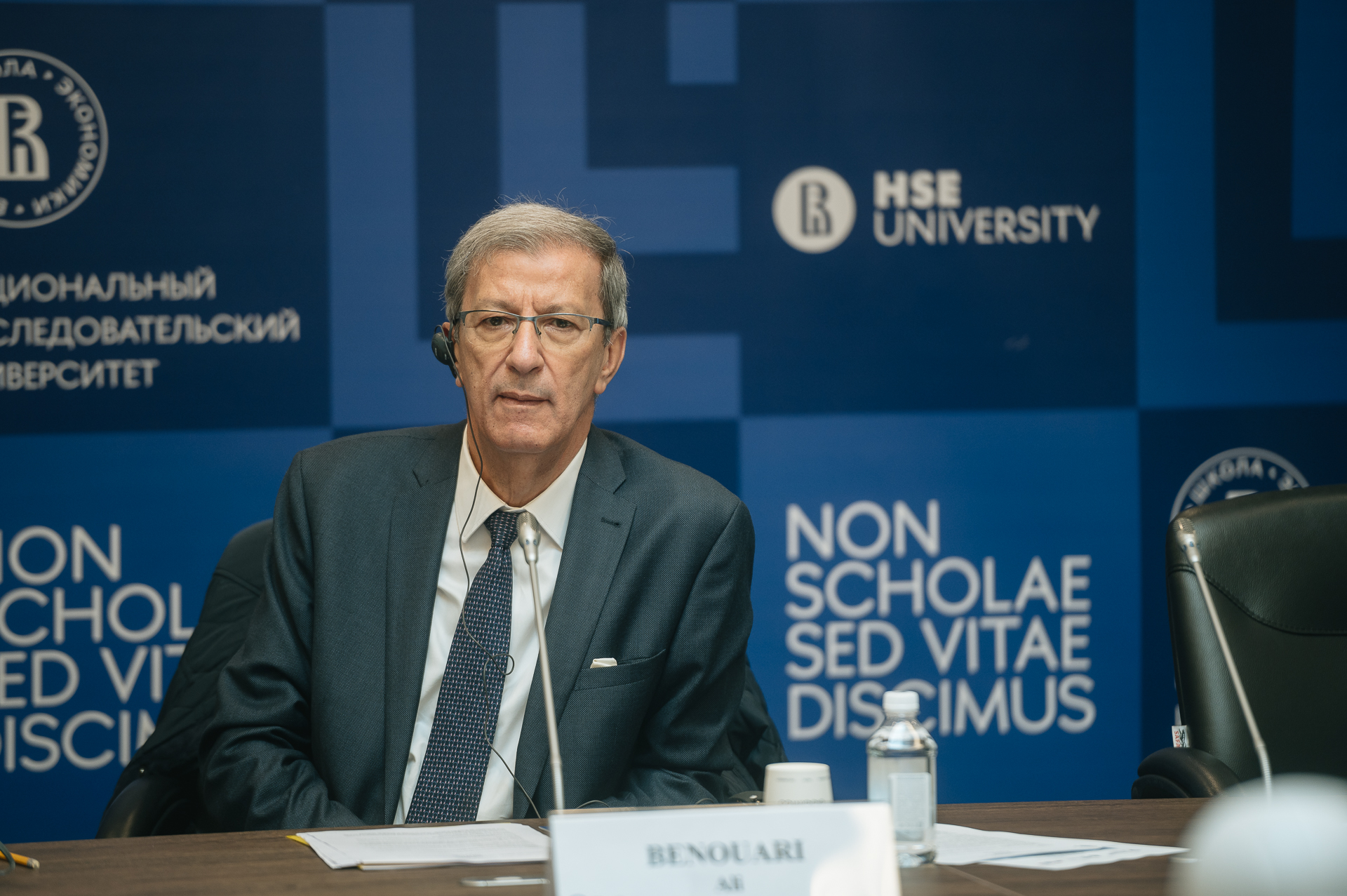Creating a New International Monetary Order: Experts Discuss Financial Issues of BRICS Countries at HSE University
On April 10th, 2024, a strategic session on monetary and financial cooperation among the majority of world countries was held at HSE University. The event was organised by the BRICS Expert Council–Russia. The main expert at the session was Ali Benouari, formerly holding positions as Algeria's Minister of Treasury and an expert at the Committee on Public Debt, now an advisor to Algeria's Ministers of Finance and Economy.
The globalisation of finance, backed by the US dollar, has led to decreased transparency and less effective market discipline. The established system dictates its rules to other countries, with serious consequences for non-compliance.

‘The dollar has become toxic. Whoever has dollars in their pocket is sure to have problems,’ says Ali Benouari. ‘In 1971, the gold standard was annulled. Americans realised that they had violated the agreement and in 1973 made an offer to Saudi Arabia to sell oil in exchange for dollars. Thus, petrodollars emerged, becoming the primary currency for selling raw materials.’
The dollar is a formidable force, added the expert. ‘If anyone wants to abandon the dollar, the Americans have their army and CIA, whose budgets exceed those of some African countries. Therefore, Americans impose their currency by force,’ emphasised Ali Benouari.
The participants of the strategic session also raised important topics, such as the possibility of mitigating credit portfolio risks for BRICS countries, expanding the BRICS organisation, increasing the share of national currencies in mutual settlements among participating countries, and creating a new financial system. ‘A new global monetary order is emerging,’ the expert stated.
As Ali Benouari noted, the main goal today is to reform the international monetary system, which is currently totalitarian. According to the speaker, Russia and China could compel the West to switch to a new, alternative order, and many countries would follow BRICS. The creation of a BRICS currency involves establishing an analogue of the SWIFT system that will meet the needs of BRICS's main players—Russia and China, explains Ali Benouari. In his opinion, this would allow for the creation of a new international monetary order and withdraw from financing the World Bank.
The global process of de-dollarisation is already underway, Ali Benouari believes. He stated that trust in the dollar has been undermined not only by its militarisation but also by the imposition of sanctions against various countries.
For structural reform of the international financial system, which meets the interests of fair and equal development, Ali Benouari proposes that BRICS member countries switch to SDRs (Special Drawing Rights) —a neutral financial unit issued by the IMF and traded on international exchanges.
Several economists and representatives of the academic community attending the strategic session presented their proposals for the development of international monetary and financial cooperation within BRICS and the majority world countries. In particular, they made proposals for the formation of a common securities market in BRICS countries, joint measures to combat inflation, and the introduction of advanced financial technological solutions, such as cryptocurrency.
The strategic session took place in the framework of the BRICS Expert Council–Russia, which was created at HSE University by the initiative of the Russian Ministry of Foreign Affairs and the Ministry of Finance, following an order by the RF Government. The Council is responsible for information, analytical, and expert support for Russia's BRICS chairship in 2024. It also carries out expert analysis and research on the relevant topics of political, socio-economic, and humanitarian cooperation in the association. The Head of the BRICS Expert Council–Russia is HSE Vice Rector Victoria Panova.

